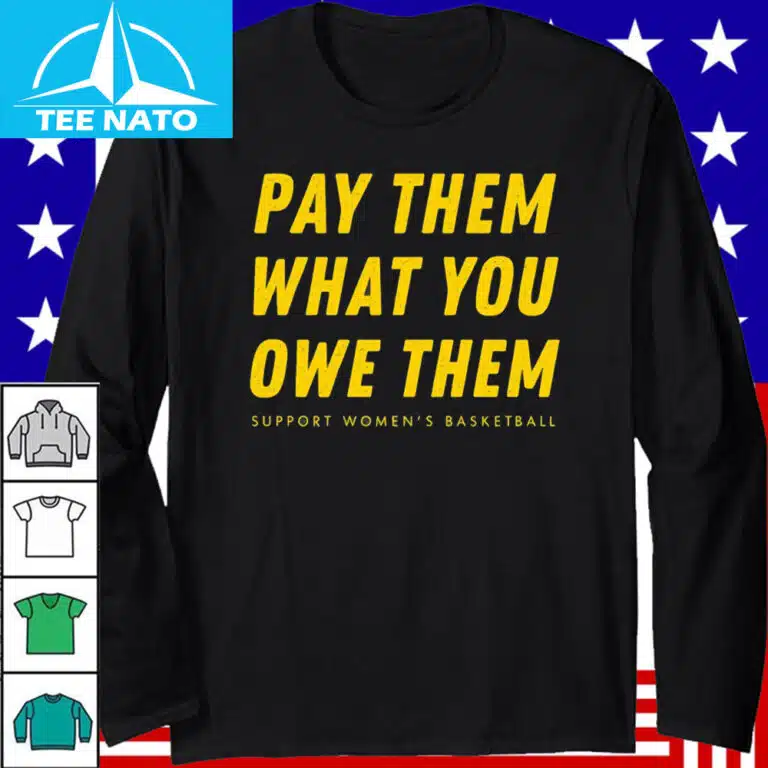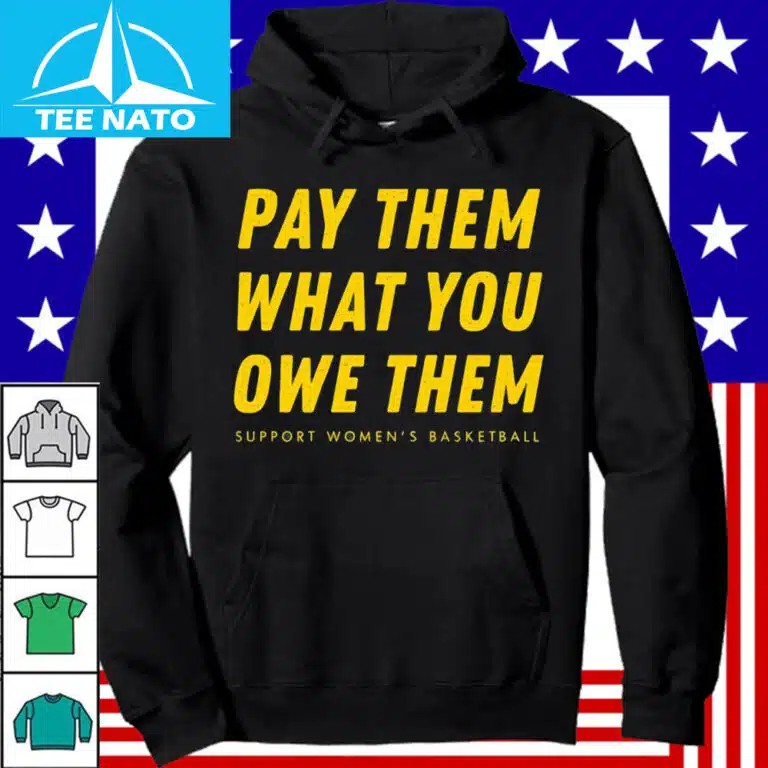Uphold Fair Wages – Sport the “Pay Them What You Owe Them” Apparel
Uphold Fair Wages – Sport the “Pay Them What You Owe Them” Apparel
The “Pay Them What You Owe Them” Apparel is more than just clothing—it’s a declaration. This impactful piece of attire champions fair compensation, employee entitlements, and financial equity. Whether you’re protesting wage theft or backing labor movements, this apparel acts as a potent conversation starter.
The Significance of the “Pay Them What You Owe Them” Apparel
Before delving into its influence, let’s explore why this apparel resonates with so many individuals. It symbolizes unity with undercompensated workers and confronts systemic injustices in the employment sector.
The Symbolic Meaning of the Slogan
The phrase “Pay Them What You Owe Them” is not just a demand—it’s a moral imperative. It targets employers who exploit labor, delay remuneration, or deny equitable compensation.
Wearing this apparel aligns you with movements fighting for liveable incomes, such as the Fight for $15 campaign. It’s a tangible protest, making economic injustice visible in everyday environments.

Styling Your “Pay Them What You Owe Them” Apparel
This apparel isn’t confined to protests—it can be a part of your daily wardrobe. Pair it with jeans for a casual look or layer it under a blazer for a refined yet activist-inspired outfit.
For maximum impact, wear it at rallies, union meetings, or even casual outings where conversations about labor rights can arise.

Real-World Instances of Compensation Advocacy
Consider the Amazon warehouse staff who organized strikes for improved pay—many sported similar messages. Or the freelance artists who utilize social media to call out clients who refuse to pay fairly.
These stories illustrate how clothing can amplify voices and hold corporations accountable.
The Evolution of Protest Attire
Fashion has always been intimately connected with activism. From suffragette sashes to Black Power fists, clothing conveys powerful messages.
Contrasting Past and Present Movements
In the 1960s, civil rights activists wore “I AM A MAN” signs to demand dignity. Today, the “Pay Them What You Owe Them” Apparel carries the same energy—asserting workers’ worth.
Both movements use simplicity to deliver profound statements, demonstrating that less can be more impactful in advocacy.
Why T-Shirts Serve as Effective Protest Tools
They’re affordable, easily accessible, and customizable. Unlike banners or signs, they transform the wearer into a walking billboard for change.
Additionally, they humanize complex issues, making them relatable to observers.
Beyond the Apparel: Supporting Fair Wage Movements
While wearing the “Pay Them What You Owe Them” Apparel is significant, true change requires tangible action.
Educate Yourself on Employment Laws
Many workers are unaware of their rights regarding overtime, minimum wage, or contract disputes. Familiarize yourself with local labor laws to effectively advocate for yourself and others.
Boycott Unethical Businesses
Support businesses that pay fair wages and expose those that do not. Consumer pressure can compel companies to reform their practices.
Join or Contribute to Worker Advocacy Networks
Organizations like the Economic Policy Institute or local unions need support. Volunteer time, share resources, or donate to sustain their efforts.
Conclusion
The “Pay Them What You Owe Them” Apparel is a modest yet potent tool in the fight for economic justice. By wearing it, informing others, and taking actionable steps, we can push for a world where equitable wages are not a demand—but a fundamental standard. `
POSTER SEO_SIBATOOL




